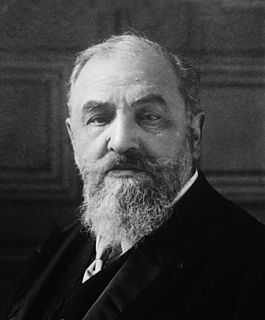A Quote by John Carroll
The act of greatest subversion ... is the one of indifference. A man, or a group, finds it unbearable that someone can be simply uninterested in his, or its, convictions. ... There is a degree of complicity, or mutual respect, between the believer and the man who attacks his beliefs (the revolutionary), for the latter takes them seriously.
Related Quotes
What [he] is apparently objecting to is that not everyone takes his beliefs seriously. Indeed, some don't seem to respect his beliefs at all, and actually poke fun at them. Well, I have news for [him]: that's the nature of a free society. Opinions don't necessarily merit respect; they must earn respect in the marketplace of ideas.
To assert that it is possible to establish peace between men of different nations is simply to assert that man, whatever his ethnical background, his race, religious beliefs, or philosophy, is capable of reason. Two forces within the individual contribute to the development of his conscience and of his morality: reason and sensitivity.
Miserable is the man who loves a woman and takes her for his wife, pouring at her feet the sweat of his skin and the blood of his body and the life of his heart, and placing her in the hands of the fruit of his toil and the revenue of his diligence; for when he slowly wakes up, he finds that the heart that he endeavored to buy is given away freely and in sincerity to another man for the enjoyment of its hidden secrets and deepest love.
When a woman submits to a man, it's the most precious gift she can give. Herself. Unreservedly. The man has to respect and honor that gift above all else. Even if he respects nothing else in the world, he must respect the woman in his care. It's his sworn duty to protect, honor and cherish his submissive. To take care of her and provide a safe haven. Someone who would put his own needs above his woman's is no man.
There was a man named Robert Dear who in court said he was a warrior for the babies, whose ex-wife talked about his Christian beliefs motivating his desire to attack and murder three people, including a police officer, in Colorado.That man is a Christian. He`s an avowed Christian. He appears to have acted on those Christian beliefs to undertake that act of violence.
And there is no difference, in principle - but only in degree - between political and chattel slavery. The former, no less than the latter, denies a man's ownership of himself and the products of his labor; and asserts that other men may own him, and dispose of him and his property, for their uses, and at their pleasure.
Everybody was talking about the religious man who committed suicide. While no one in the monastery approved of the man's action, some say they admired his faith. Faith?" said the Master. He had the courage of his convictions, didn't he?" That was fanaticism, not faith. Faith demands a greater courage still: to reexamine one's convictions and reject them if they do not fit the facts.
Man is appealed to be guided in his acts, not merely by love, which is always personal, or at best tribal, but by his perception of his oneness with each human being. In the practice of mutual aid, which we can re-trace to the earliest beginnings of evolution, we thus find the positive and undoubted origin of our ethical conceptions; and we can affirm that in the ethical progress of man, mutual support- not mutual struggle- has had the leading part.
Now let's move on to the subject of how a real man treats his wife. A real man doesn't slap even a ten-dollar hooker around, if he's got any self-respect, much less hurt his own woman. Much less ten times over the mother of his kids. A real man busts his ass to feed his family, fights for them if he has to, dies for them if he has to. And he treats his wife with respect every day of his life, treats her like a queen - the queen of the home she makes for their children.
Ethically they had arrived at the conclusion that man's supremacy over lower animals meant not that the former should prey upon the latter, but that the higher should protect the lower, and that there should be mutual aid between the two as between man and man. They had also brought out the truth that man eats not for enjoyment but to live.





































